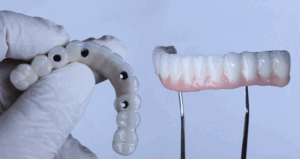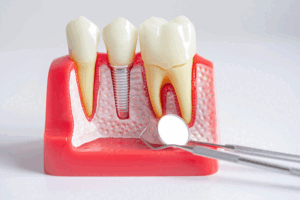Dental implants have transformed the way missing teeth are replaced, offering a permanent, natural-looking, and highly functional solution. They restore confidence, improve oral health, and prevent bone loss, making them an ideal choice for many patients. However, as with any surgical procedure, dental implant risks must be carefully considered before undergoing treatment. While the success rate for implants is exceptionally high—often above 95%—certain complications may arise depending on individual health factors and post-operative care.
The key to a successful and long-lasting dental implant lies in patient education and informed decision-making. Potential risks include infection, nerve damage, implant failure, and sinus complications, especially if implants are placed in the upper jaw. These risks are rare but can be minimized by choosing an experienced implant specialist, following post-operative instructions, and maintaining excellent oral hygiene. Understanding these factors allows patients to confidently move forward with their implant journey while ensuring the best possible outcome.
What Can Increase the Risk of Implant Complications?
Several factors play a role in the success or failure of a dental implant, and patient health, lifestyle choices, and surgical precision are among the most significant contributors. Individuals with chronic conditions like diabetes, osteoporosis, or autoimmune diseases may experience slower healing, increasing the likelihood of complications. Additionally, smoking and excessive alcohol consumption impair the body’s ability to heal, making implant failure more probable. Patients with these conditions should discuss their concerns with their dentist to determine the best approach for success.
Beyond personal health, the surgical technique and precision of implant placement are crucial in determining long-term stability. Poor placement may lead to excessive stress on the implant, misalignment of the bite, or even nerve damage, resulting in discomfort or implant failure. Furthermore, patients with low jawbone density may require a bone grafting procedure before implantation to create a solid foundation for the implant. Selecting a skilled implant specialist who uses advanced imaging technology and precise surgical methods significantly reduces these risks, ensuring a smoother recovery process and a long-lasting restoration.
Recognizing Warning Signs and Taking Preventive Measures
Being aware of early warning signs of implant complications is essential for preventing more serious issues down the road. Patients should be vigilant for symptoms such as persistent pain, swelling, excessive bleeding, or tenderness that last beyond the initial healing period. Looseness of the implant, difficulty chewing, gum recession, or sudden changes in bite alignment may also indicate problems that require immediate professional attention. One of the most common implant-related complications is peri-implantitis, an infection that leads to gum inflammation and bone loss around the implant.
To prevent these risks, patients must prioritize proper oral hygiene and follow all post-operative care guidelines. Daily brushing and flossing, along with the use of an antimicrobial mouth rinse, help prevent infection and promote healing. Routine dental check-ups allow professionals to monitor the implant’s stability, catching potential issues before they become major concerns. Additionally, avoiding habits like chewing hard foods, teeth grinding, and smoking further protects the implant and surrounding structures, ensuring long-term success.
Why Choosing the Right Dental Implant Specialist Matters
A well-placed implant can last a lifetime, but the experience and expertise of your implant provider directly impact the final result. Choosing a skilled, reputable dental implant specialist is crucial for reducing risks and ensuring a comfortable, well-functioning restoration. A qualified provider will conduct a thorough evaluation of your oral health, assess bone density, and discuss your medical history to determine your eligibility for dental implants. Advanced 3D imaging and digital treatment planning allow for precise placement, minimizing complications and improving the overall success rate.
At Union Dental Implant Center, we are dedicated to providing safe, high-quality dental implant treatments tailored to each patient’s unique needs. Our experienced team uses state-of-the-art technology and personalized treatment plans to ensure optimal outcomes. We emphasize clear communication and comprehensive pre-treatment assessments, so patients fully understand the procedure, potential risks, and aftercare requirements. With our expert guidance and meticulous care, you can move forward with confidence, knowing you’re in the hands of skilled professionals committed to achieving long-lasting, successful dental implant results.
Are you ready to restore your smile with dental implants at our skilled and trusted dental practice? Don’t wait to get the smile of your dreams with us. Get in contact with our doctor, Dr. Adam Carter, and our exceptional team at our practice to schedule an appointment today!






